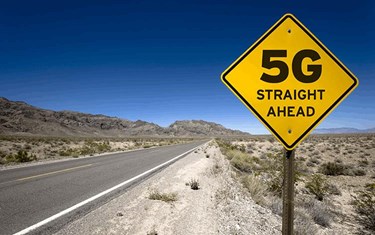5G Progressing Faster Than Expected
By Jof Enriquez,
Follow me on Twitter @jofenriq

Fifth-generation (5G) mobile and wireless systems are advancing much faster than anticipated, as indicated by the latest industry and regulatory trends.
Commercial 5G networks – with the promise to deliver ultra-fast, low-latency, high-capacity services – are not expected to debut until sometime during the start of the next decade, but companies and industry groups already are discussing where and how 5G technology is headed.
"Our original expectation was that 5G would only really take off in the 2020 to 2021 time period, that is now changing, as we see some lead customers in both the United States and China preparing to move earlier, and that should drive others to respond," said Rajeev Suri, President and CEO of Nokia, in a Seeking Alpha transcript of the company's second quarter earnings call.
Suri added that he is "increasingly convinced that 5G trials will accelerate in 2018, and that in 2019, we can expect to start to see meaningful deployments in the U.S. and China, and potentially several other markets like Japan."
Apple may be one of those ahead of the game in terms of 5G deployment in the United States. The company this week received approval from the Federal Communications Commission (FCC) for an experimental license to test 5G technology in the short-range millimeter-wave spectrum (28GHz and 39GHz bands) in two locations in Milpitas, California, according to DSL Reports.
Apple sought permission from FCC earlier this year, with the goal of “provid[ing] engineering data relevant to the operation of devices on wireless carriers’ future 5G networks,” including upcoming iPhone models that will run on 5G, reported The Verge.
Industry and companies have yet to come up with a uniform 5G standard, and are experimenting with competing 5G technologies such as mm-Wave, massive MIMO, small cells, beamforming, and full duplex.
Rapid build-out and deployment of the physical infrastructure of 5G networks also depend on new legislation, something that could be considered lacking at the state level.
“It’s going to massively affect our economy and everything people do in the future,” said Arizona State Rep. Jeff Weninger, R-Chandler, who sponsored HB 2365 (which passed into law in April), designed to streamline 5G deployment in the state. “If we don’t allow, in a rapid way, companies able to expand these services we’re going to be way behind the eight-ball,” he added, according to AZ Family.
Arizona intends to implement small cell technology across the state, positioning it among the first handful of states to have 5G fully deployed. HB 2365 could serve as a template for other areas, and Arizona lawmakers and companies believe that other states should follow Arizona's lead when it comes to laying the groundwork for increased 5G investment and deployment.
